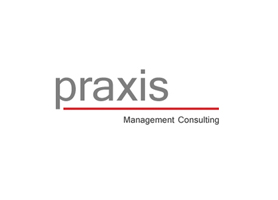
3 Reasons your CHRO Needs to be on your Board
In the previous articles Michael Jenkins and myself have written about the Chair, CEO and CHRO relationships and dynamics (links below), we have touched on some of the defining moments a CHRO might face in their career as well as how an organisation might benefit from having a CHRO on the board (rather than just presenting to it).
In this short piece I wanted to highlight 3 of the many key reasons a CHRO can benefit a company by being on the board as a regular member.
Let’s unpack to see how differently these scenarios might play out if the CHRO were a permanent fixture in the boardroom…
1.Managing through crisis / emergency situations
Prior to 2020 and the global pandemic words such as ‘crisis’, ‘emergency’, ‘business continuity plan’ might have not formed part of everyday vocabulary for many businesses. It might have even seemed like overkill to be worrying about things we thought could never affect us on a macro level.
Wow, how wrong we all were!
Having a CHRO in an executive function for situations such as a pandemic (but also security issues, travel crises, natural disasters, press issues etc. etc.) means that someone is leading the organisation’s response from a commercial as well as a ‘people’ perspective. So many things could fall through the cracks if these areas are not addressed, and many companies found that out the hard way.
This isn’t to say that the CHRO necessarily does all of the planning and managing, but they oversee that all the moving parts are in play when needed (think logistics such as remote offices, tech set up, workforce management, employee health considerations, media communications… the list goes on!). Where the finance people do their thing, and the team leaders make sure the day to day operations run smoothly, the CHRO can be the umbrella go-to person for all the people issues and considerations that need to be attended to.
Talking of people issues…
2. Acting as the ‘people’ link between the board and the employees
Another way to look at the CHRO on the board role is that they can be (or should be) a champion of the ‘people’ – the employees of the organisation, making sure they have a voice in the boardroom too. Because most CHROs have their ears to the ground, they are often able to bring a completely new dynamic to the table and bridge the gap between executives who might not spend much time on the ‘front line’.
And this works both ways – they are also able to pass down board directives in a way that translates to each team and employee’s needs. Employees will always benefit from understanding why a decision was made.

3. The inclusivity and diversity factor
There is no getting away from the fact that if an organisation continues to bury its head in the sand regarding inclusivity and diversity and any of the other issues this encompasses, then it won’t end well. This goes beyond simply ensuring the gender pay gap is closed, and a diverse workforce is in place. Those are the bare minimum must-haves. For any company wanting to last the distance, it will take a complete cultural shift and for all levels of the business to truly embody a culture of empathy, inclusivity and diversity – in all its forms.
The CHRO’s role on the board is to ensure that these are not simply tick box exercises but that the company is transformed inside out to ensure that they are truly a culturally diverse organisation.
None of these things can happen overnight; that’s for sure. And while it might seem like things are too slow moving, simply having these conversations and making the iterative changes needed is exactly how big changes take place.
Having a coach or a guide to help organisations through these processes is also key; it is not something that can or should be done alone.
Dr Robyn Wilson focuses on helping leaders tackle the change and challenges they face and journeys with them as they, their teams and organizations navigate these with the aim of becoming stronger, gaining more clarity and with strengthened relationships and personal capability. She is the founder of Praxis Management Consulting.


No Comments